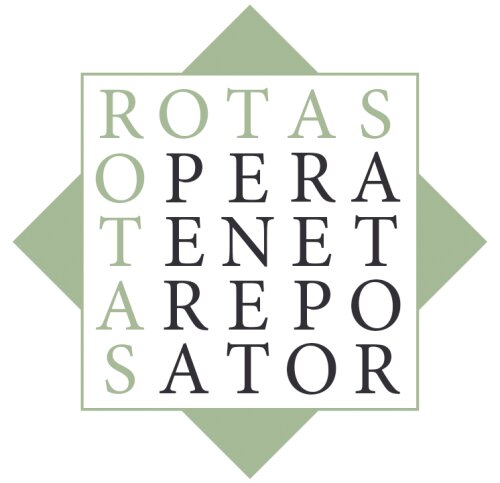Best Fintech Lawyers in Italy
Share your needs with us, get contacted by law firms.
Free. Takes 2 min.
Or refine your search by selecting a city:
List of the best lawyers in Italy
About Fintech Law in Italy:
Fintech in Italy refers to the use of technology to provide financial services, including digital payments, crowdfunding, peer-to-peer lending, and robo-advisors. The Italian government has been supportive of Fintech innovation, leading to a growing number of startups in the sector.
Why You May Need a Lawyer:
You may need a lawyer for Fintech-related legal issues such as regulatory compliance, intellectual property protection, contract negotiations, data privacy, and disputes with customers or partners. A Fintech lawyer can help you navigate the complex legal landscape and protect your interests.
Local Laws Overview:
In Italy, Fintech companies are regulated by the Bank of Italy and the Italian Securities and Exchange Commission (CONSOB). Key laws that are relevant to Fintech include the Consolidated Banking Act, the Consumer Code, the Privacy Code, and the Anti Money Laundering Act. It's important to comply with these laws to operate legally in the country.
Frequently Asked Questions:
1. What are the main challenges Fintech companies face in Italy?
Compliance with regulations, cybersecurity risks, and competition from traditional financial institutions are some of the main challenges Fintech companies face in Italy.
2. Do Fintech companies need a license to operate in Italy?
Yes, Fintech companies in Italy may need a license from the Bank of Italy or CONSOB depending on the services they provide.
3. How can a lawyer help with Fintech regulatory compliance?
A lawyer can help Fintech companies understand and comply with the relevant regulations, navigate licensing requirements, and develop compliance programs to mitigate legal risks.
4. How can I protect my Fintech company's intellectual property?
A lawyer can help Fintech companies protect their intellectual property through patents, trademarks, copyrights, and trade secrets. They can also draft contracts to secure ownership of IP rights.
5. What are the data privacy laws Fintech companies in Italy need to comply with?
Fintech companies in Italy need to comply with the General Data Protection Regulation (GDPR) and the Italian Privacy Code. They must ensure the protection of personal data and obtain consent from users for data processing.
6. What are the legal risks of using AI and machine learning in Fintech?
Legal risks of using AI and machine learning in Fintech include bias in algorithms, lack of transparency, data privacy concerns, and potential liability for algorithmic decisions.
7. How can a lawyer help with Fintech contract negotiations?
A lawyer can review, draft, and negotiate contracts for Fintech companies, including vendor agreements, partnership agreements, and terms of service. They can help protect your interests and avoid disputes.
8. What are the common disputes Fintech companies may face?
Common disputes Fintech companies may face include breaches of contract, regulatory investigations, intellectual property infringement, data breaches, and consumer complaints. A lawyer can help resolve these disputes through negotiation, mediation, or litigation.
9. How can I ensure compliance with anti-money laundering laws in Fintech?
A lawyer can help Fintech companies develop anti-money laundering (AML) policies and procedures, conduct due diligence on customers, monitor transactions for suspicious activity, and report suspicious transactions to authorities.
10. What should I do if my Fintech company is facing a regulatory investigation?
If your Fintech company is facing a regulatory investigation, it's important to seek legal advice immediately. A lawyer can help you respond to regulators, understand your rights, and mitigate potential legal consequences.
Additional Resources:
For more information on Fintech laws and regulations in Italy, you can visit the Bank of Italy and CONSOB websites. You may also consider joining industry associations like the Italian Fintech Association (ITA FinTech) for networking and educational resources.
Next Steps:
If you need legal assistance with Fintech matters in Italy, consider contacting a Fintech lawyer with experience in the field. They can provide personalized advice and guidance to help you navigate the legal challenges and opportunities in the Fintech industry.
Lawzana helps you find the best lawyers and law firms in Italy through a curated and pre-screened list of qualified legal professionals. Our platform offers rankings and detailed profiles of attorneys and law firms, allowing you to compare based on practice areas, including Fintech, experience, and client feedback.
Each profile includes a description of the firm's areas of practice, client reviews, team members and partners, year of establishment, spoken languages, office locations, contact information, social media presence, and any published articles or resources. Most firms on our platform speak English and are experienced in both local and international legal matters.
Get a quote from top-rated law firms in Italy — quickly, securely, and without unnecessary hassle.
Disclaimer:
The information provided on this page is for general informational purposes only and does not constitute legal advice. While we strive to ensure the accuracy and relevance of the content, legal information may change over time, and interpretations of the law can vary. You should always consult with a qualified legal professional for advice specific to your situation.
We disclaim all liability for actions taken or not taken based on the content of this page. If you believe any information is incorrect or outdated, please contact us, and we will review and update it where appropriate.
Browse fintech law firms by city in Italy
Refine your search by selecting a city.















